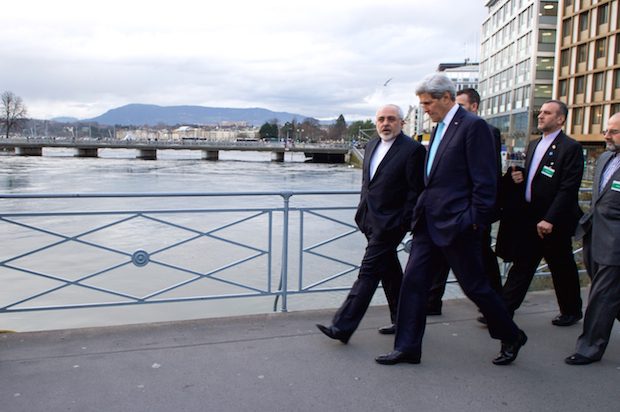Iran Talks at a Crossroads

It’s a more morbid variant of an old and already morbid political joke.
They said if I voted for Goldwater, we would be at war in Vietnam within a year. Well, I voted for Goldwater and they were right.
The new version goes something like this: They said if I opposed the Iraq war, Islamic radicals might get a hold of Saddam Hussein’s chemical weapons. Or: They said if I opposed the war for regime change in Libya, Libya would descend into violence.
Lost in the partisan finger-pointing over residual forces in Iraq or boots on the ground in Libya is an uncomfortable fact: the two most recent preventive wars fought by the United States would end up achieving nearly the opposite of their original aims.
Saddam and Gaddafi are gone, preventing whatever atrocities they would have later committed if they had held onto power. But fresh, new atrocities have replaced the old.
Worse from an American security perspective, the progeny of the Islamic radicals who attacked the United States on 9/11 now have more space to operate in these countries than before the wars.
All this is worth revisiting as we arrive at a crossroads with Iran, which was paradoxically one of the indirect winners of the Iraq war.
Negotiations over Iran’s nuclear program proceed, but with major obstacles. There is bipartisan support for additional sanctions that could disrupt the diplomacy altogether. Israeli Prime Minister Benjamin Netanyahu is scheduled to address Congress, with the expectation that he’ll encourage skepticism about the nuclear negotiations.
Arkansas Republican Sen. Tom Cotton has gone a step further than Netanyahu has ever publicly been willing to go. “The end of these negotiations isn’t an unintended consequence of congressional action,” the freshman senator confessed. “It is very much an intended consequence—a feature, not a bug.”
This moves the goalposts somewhat. The original argument made by many supporters of the current sanctions regime is that it would force Iran to the negotiating table. Now we’re supposed to abandon the negotiations and impose more sanctions.
Is it possible that once again the more hawkish approach will produce the opposite of the intended results? It’s worth noting that when the U.S. wasn’t talking to Tehran, Iran went from having the zero centrifuges Netanyahu would prefer to more than 6,000.
Now 6,500 to 7,000 centrifuges would be a significant reduction in what Iran already has, achievable only through diplomacy.
The hope is that additional sanctions can break Tehran and force them to accept something closer to zero centrifuges and zero enrichment. But it seems more likely that the collapse of the talks will also torpedo the multilateral sanctions regime, making U.S. sanctions less effective.
An end to the negotiations might also sharply curtail the inspections that are the best way to ensure Iran doesn’t get the bomb. Joseph Cirincione noted in The Atlantic that without inspectors, Iran could build secret new facilities and see its breakout time “go from the current two or three months to two or three weeks.”
At that point, our only options would be war or a nuclear Iran. It’s not clear limited strikes would work. Regime change, which already went badly in Iraq and Libya, would be even more difficult here.
“Unfortunately, the current regime is strong and the United States does not have any sensible, practical means of bringing about a more desirable form of government in Iran,” Atlantic Council senior fellow Matthew Kroenig told the Huffington Post.
Kroenig is no reflexive Iran dove. In fact, he published a Foreign Affairs piece titled “Time to attack Iran.”
As for invading and occupying Iran, the country is larger and more populous than Iraq. The invasion and occupation of Iraq unleashed ISIS, empowered Iran and, as Republicans like Cotton should remember, resulted in the election of President Obama and a Democratic Congress at home.
“If neoconservatism does have any principle, it is this one: the law of unintended consequences,” James Q. Wilson observed after the death of Irving Kristol. “Launch a big project and you will almost surely discover that you have created many things you did not intend to create.”
Wise words that don’t just apply to the welfare state.
W. James Antle III is managing editor of the Daily Caller and author of Devouring Freedom: Can Big Government Ever Be Stopped?
Comments